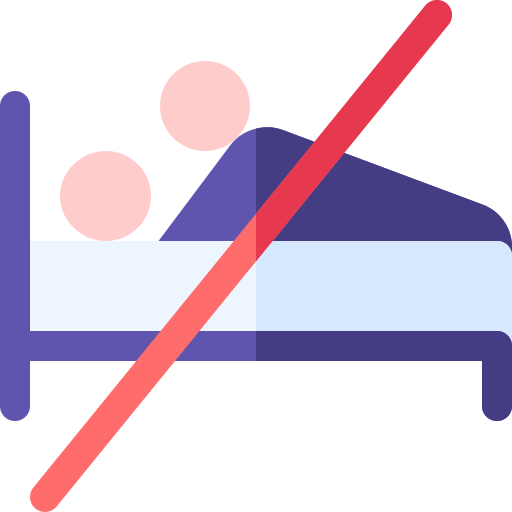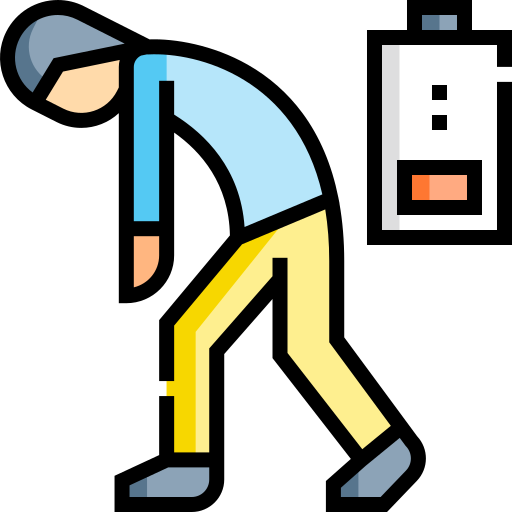🙅♀️ Acupuncture Prohibitions
In school, we usually learn there are certain situations when a patient should not be needled, or we should at least be cautious and not use too many points.
For example, Chinese Acupuncture and Moxibustion says:
It is advisable to apply few needles or to delay giving acupuncture treatment to the patients who are either famished or overeaten, intoxicated, overfatigued or very weak.
In our clinic, we were also prohibited from giving a treatment if the patient's blood pressure was too high (>160).
But recently, while perusing the Nei Jing, I found a classical set of needling prohibitions...
(These prohibitions all come from chapter 9 of the Ling Shu, translated by Unschuld.)

Keep the Windows Closed
First, the Nei Jing says that acupuncture should be done in a calm location. The practitioner should concentrate and focus their spirit into the tip of the needle.
But it also says that you should keep the doors and windows closed. You don't want the patient's Hun and Po to fly away.
[A needling is to be applied] inside a calm location; the coming and going of the spirit is to be investigated.
The doors and windows remain shut; the hun and the po souls are unable to dissipate.
[The healer] concentrates his spirit; essence and qi do not part. No one’s voice can be heard; this way he collects his essence.
He must focus his own spirit and attach his mind to the needle.
(Actually, this probably means that the doors and windows should be kept shut to prevent the practitioner's spirit from scattering. If it's loud outside, having the window open can distract the practitioner and make it more difficult to concentrate.)
After this, it lists the "twelve prohibitions" (even though the number doesn't actually add up to twelve):

Sex and Alcohol
It starts by saying not to have sex before or after acupuncture. Also, don't get drunk immediately before or after acupuncture:
For all piercing the following prohibitions apply:
When [a man] had just been inside [the chamber of the women], he must not be pierced. If he was just pierced, he must not enter [the chamber of the women].
If he is drunk, he must not be pierced. If he was just pierced, he must not get drunk.

Overexertion
It also cautions against overexertion:
If he had just overexerted himself, he must not be pierced. If he was just pierced, he must not overexert himself.

Eating and Drinking
You shouldn't be too full or too hungry. You shouldn't be too thirsty.
If he had just dined to repletion, he must not be pierced. If he was just pierced, he must not dine to repletion.
If he is hungry, he must not be pierced. If he was just pierced, he must not become hungry.
If he thirsty, he must not be pierced. If he was just pierced, he must not become thirsty.

Extreme Emotions
Anger and fright can disrupt the qi. Wait until the patient is calm.
If he had just been angry, he must not be pierced. If he was just pierced, he must not become angry.
...
If he was seriously scared, or is frightened, his qi are to be stabilized first, and only then a piercing may be applied.

Sit and Rest
Before starting acupuncture, patients should sit and rest before treatment begins:
Those [patients] who come by car, they must be made to lie down and rest. After a time required to have a meal they may be pierced.
Those who have come walking, they must be made to sit down and rest. After a time required to walk for a distance of 10 li they may be pierced.
I'm not sure they had cars in the time of Huang Di. The Chinese characters are actually 乘車, which means more like, "arrive by vehicle or cart."
Also, a li is about 500 meters. So the "time required to walk for a distance of 10 li" is the time it takes to walk three miles.

Negative Consequences
So why do we have to follow these rules?
Well, many of the activities listed above can disrupt or dissipate the flow of qi. If you attempt to needle a patient in these situations, you may inadvertently spread the disease or strengthen the pathogen:
For all these twelve prohibitions the following applies. If [a patient’s movement in the] vessels is confused, with his qi dissipated, if his camp and guard [qi] move contrary to the norm, and if the [flow of ] qi in the conduits fails to adhere to the right sequence, if in such a situation a piercing is applied then the yang disease will enter the yin realm, and a yin disease leaves its realm and enters the yang realm. This results in a renewed emergence of evil qi.

What about you?
So what about you? Do you follow these prohibitions?
Do you ask your patients if they had recently visited a woman's bedchamber before coming to treatment?
If they come by car, do you make them lie down for the amount of time it takes them to eat a meal?
Anyway, I hope you enjoyed this little glimpse into the classics!
